On Wemaxa.com, the back-end technologies we use are carefully selected based on the specific service tier and unique requirements of each client. We believe in building solutions that are not only technically sound but also tailored to the goals, scale, and long-term vision of your project. While some clients may need lightweight, fast-loading websites with minimal back-end functionality, others require complex infrastructures to support e-commerce, membership systems, or custom APIs. Our approach is flexible and always aligned with what the project demands.
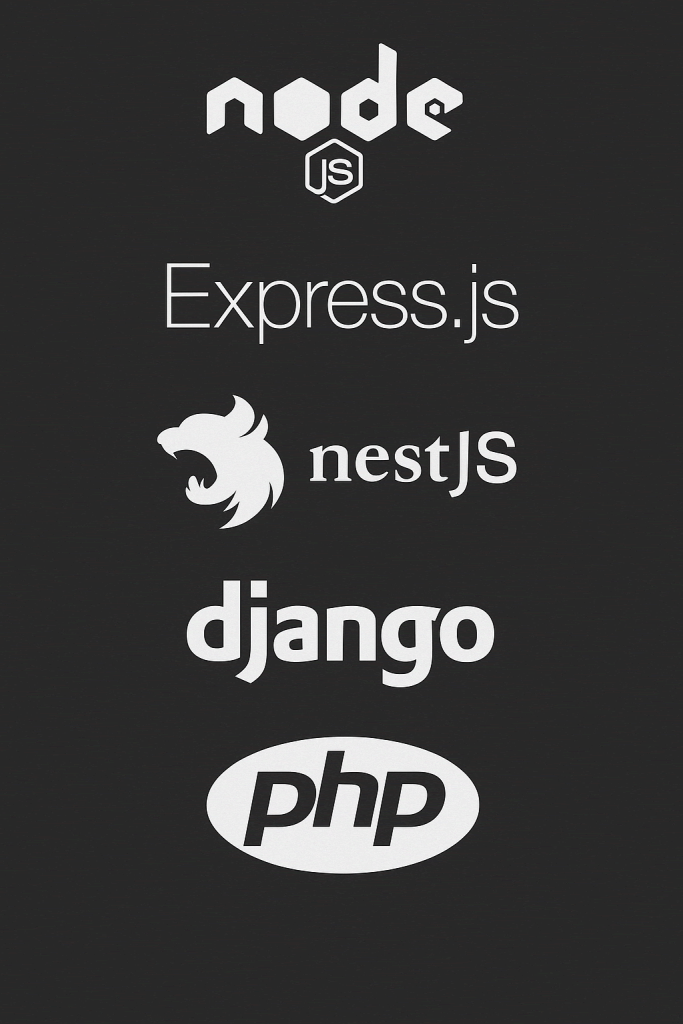
Commonly used technologies in our back-end stack include PHP (especially when working with WordPress and WooCommerce), Node.js for scalable real-time applications, and Python for projects involving AI integration or custom automation. We also work with modern frameworks like Laravel, Express.js, and Flask, depending on the build requirements. These technologies help us create secure, maintainable, and future-proof systems that support everything from content delivery and user authentication to data handling and cloud services.
In terms of databases, we often implement MySQL and MariaDB for traditional web applications, along with PostgreSQL when more complex querying and relational structures are needed. For projects requiring high performance and scalability, we also integrate NoSQL solutions like MongoDB or Redis. All data is managed with attention to speed, integrity, and security, ensuring that your platform performs consistently under real-world usage.
Beyond the code itself, we leverage cloud services and DevOps tools like Docker, GitHub Actions, and cloud platforms such as AWS or Google Cloud to streamline deployment, updates, and backups. The goal is to provide a smooth, stable environment that supports your operations without friction. Whether you’re running a small business site or a high-traffic digital product, Wemaxa ensures your back-end foundation is engineered to deliver speed, flexibility, and long-term reliability.
☁️ Cloud & DevOps
- Docker – All custom app deployments are containerized for consistency.
- Kubernetes – Used in Enterprise-level deployments to scale services.
- Nginx – Reverse proxy and load balancer.
- Cloud Providers: AWS, Google Cloud, DigitalOcean.
🔐 Security & Performance
- SSL via Let’s Encrypt
- Fail2Ban, UFW, IPTables – Server-level brute-force protection.
- ClamAV + Postfix – Email virus filtering on servers.
- CDNs – Cloudflare integration for DDoS protection and asset delivery.
⚙️ Back-End Stack Overview
🛠️ Languages & Frameworks
- Node.js – For high-performance asynchronous back-end services.
- Express.js – Lightweight REST API development.
- NestJS – Scalable and modular architecture for enterprise apps.
- Django (Python) – For rapid development with built-in admin, especially on data-heavy sites.
- PHP (for WordPress installations) – Used in most Basic and Starter WordPress packages.
🗄️ Databases
- PostgreSQL – Preferred for structured data, relational queries, and performance.
- MySQL/MariaDB – Widely used in WordPress and LAMP/LEMP stack deployments.
- Firebase Firestore – For real-time app needs or NoSQL structures.
- Redis – For caching, session management, and real-time analytics.
🔗 API & Integration
- REST & GraphQL APIs – For frontend-backend communication.
- OAuth2 / JWT Authentication – Secure token-based user access.
- Third-Party APIs – Payment gateways, email services, AI inference endpoints.
🧪 Testing & Deployment
- Jest / Supertest – For unit and integration testing in Node environments.
- CI/CD via GitHub Actions, GitLab CI, or Jenkins – Automated testing, deployment, and container builds.
MORE LINKS:
What is Fullstack?
Supported Databases
Data storage methods
API creation
3rd party services
Hosting Setup
Backend developer
Project scaling
Average turnaround
BACKEND WEB DEVELOPMENT TECHNOLOGIES
When clients ask what backend technologies power our projects, the conversation usually extends far beyond simply naming a few programming languages. Backend technologies form the invisible foundation that makes every website, application, or digital product reliable, secure, and scalable. At Wemaxa, we treat backend engineering as the structural framework that determines how efficiently data is stored, how seamlessly it flows between servers and clients, and how resistant the platform is to traffic spikes or malicious attacks.
Choosing the right technology stack involves careful evaluation of performance benchmarks, maintainability, compatibility with frontend frameworks, and long-term sustainability of the project. Unlike design layers that can be rebranded or swapped, backend architecture requires foresight because it dictates operational costs, server efficiency, and ultimately user satisfaction. This is why our teams rely on proven, enterprise-grade solutions such as Node.js, Django, Laravel, and highly optimized databases like PostgreSQL or MySQL, ensuring that every project can adapt to growth and new requirements without painful restructuring.
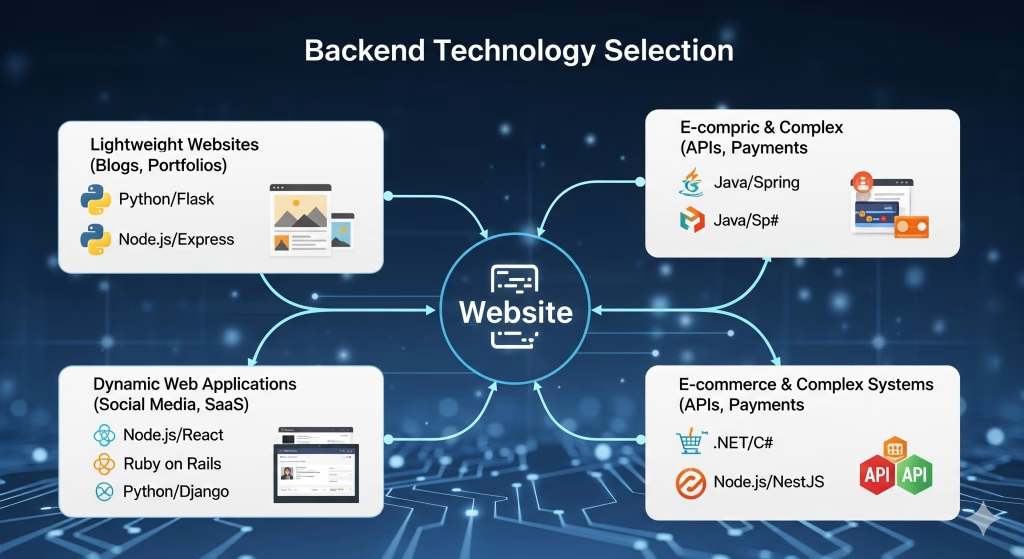
A robust backend is also about far more than just speed. Scalability is a major concern for companies that expect user bases to expand significantly. By leveraging cloud infrastructure such as Amazon Web Services, Microsoft Azure, or Google Cloud, we enable dynamic scaling where applications can automatically adjust resources depending on traffic patterns. This elasticity prevents downtime, lowers operational costs during off-peak hours, and preserves customer trust.
At the same time, containerization tools like Docker and orchestration frameworks like Kubernetes allow us to streamline deployments, isolate environments, and ensure that updates never interfere with ongoing user activity. All of these backend decisions influence not only how stable the application feels but also how efficiently development teams can add new features, troubleshoot bugs, and adapt to shifting business needs.
Security is another dimension where backend technologies play an irreplaceable role. In today’s digital ecosystem, sensitive user data flows constantly across networks, making applications vulnerable if the backend is not hardened correctly. Wemaxa incorporates strong authentication layers, data encryption standards, and compliance-focused frameworks such as OWASP best practices to protect against SQL injections, cross-site scripting, and other attack vectors.
We frequently integrate identity management systems like Auth0 or open standards such as OAuth 2.0 to simplify secure login experiences while safeguarding accounts against brute-force attempts. Beyond coding-level defenses, server monitoring, automated backups, and intrusion detection systems ensure that security is treated not as an afterthought but as a continuous process. By layering these technologies, the backend becomes resilient against disruptions and maintains the integrity of sensitive assets such as payment data, client records, or proprietary business logic.
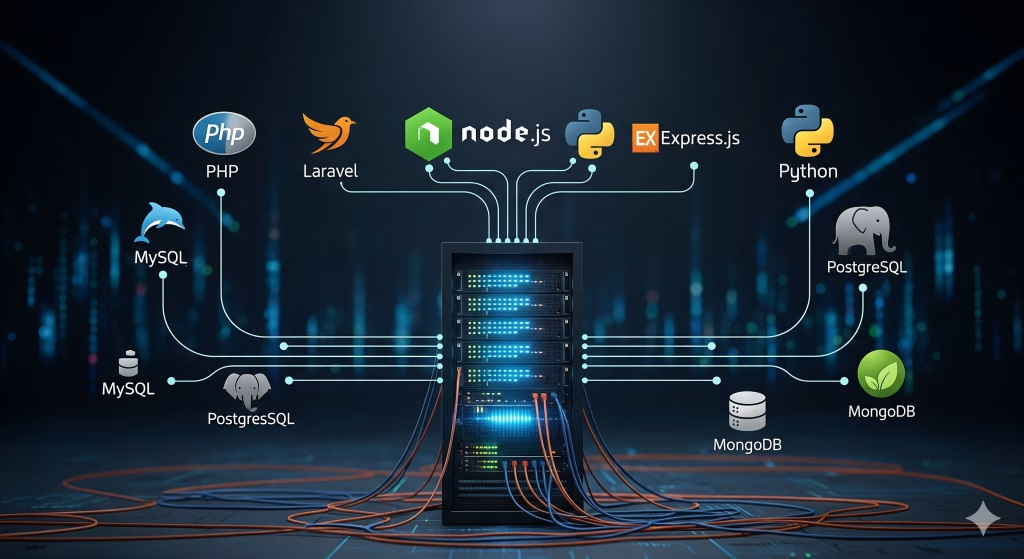
Another aspect worth highlighting is integration. Modern businesses rarely operate in isolation; they rely on CRMs, payment processors, third-party APIs, and internal dashboards to function cohesively. Backend technologies act as the bridge between these different systems, providing standardized communication and synchronization. Through RESTful APIs and more sophisticated GraphQL implementations, we can create seamless data exchanges across platforms, ensuring that whether a company is using Salesforce, Stripe, or an in-house ERP system, information flows without bottlenecks or duplication.
The backend is also where business logic lives, automating processes like order management, subscription billing, and analytics aggregation, turning what could be manual and error-prone tasks into streamlined workflows. As a result, backend integration becomes not just a technical task but a strategic enabler of operational efficiency.
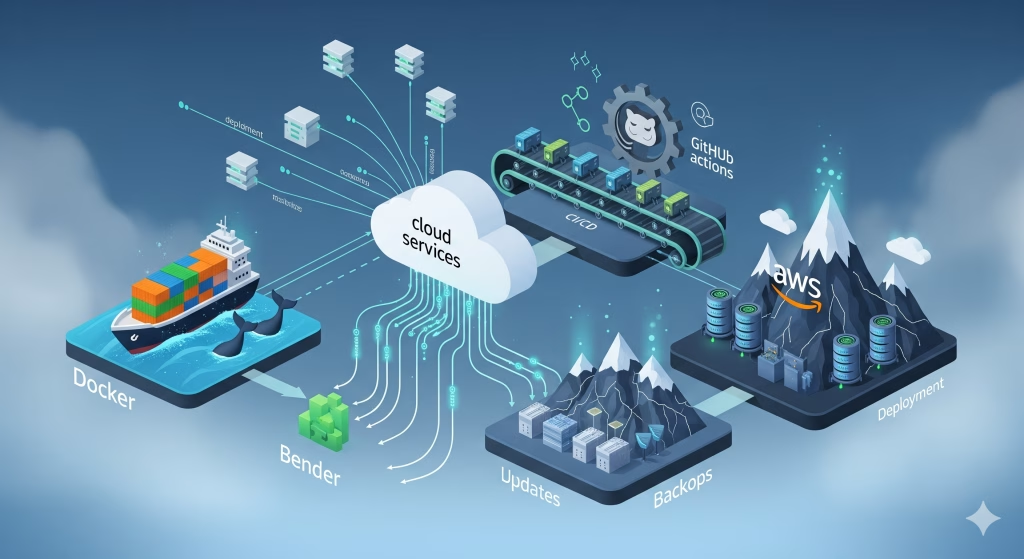
Performance optimization is equally critical in backend development. Even with powerful servers and advanced cloud resources, poorly optimized queries or inefficient code can slow down applications and frustrate users. Wemaxa employs caching strategies through systems like Redis or Memcached to store frequently accessed data and reduce the need for repetitive calculations. Load balancing techniques distribute requests evenly across multiple servers, preventing bottlenecks and ensuring consistent performance under pressure.
Code profiling, database indexing, and asynchronous processing further contribute to responsiveness, enabling platforms to handle thousands of concurrent users without latency. By continually monitoring and optimizing backend operations, we ensure that speed becomes a competitive advantage rather than a liability.
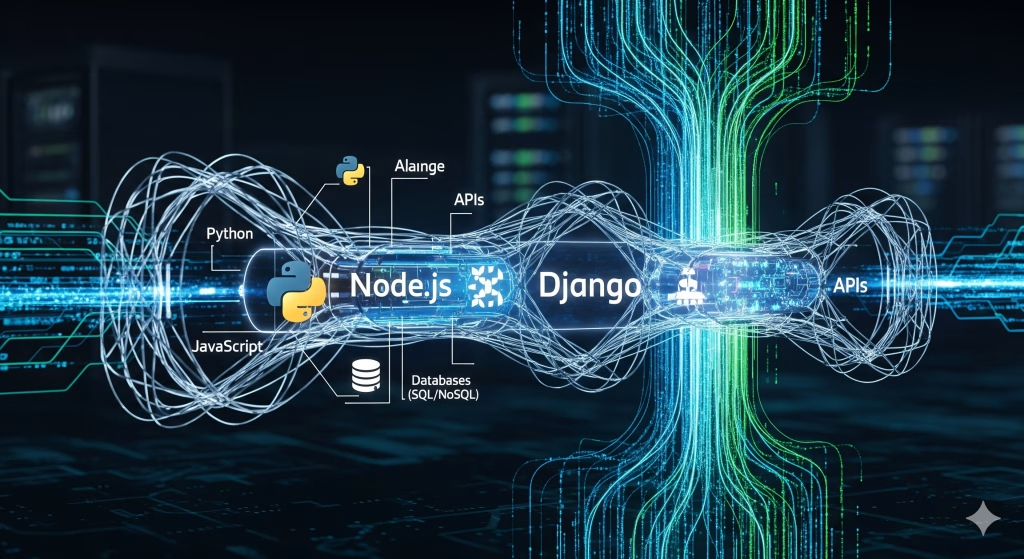
Ultimately, the backend technologies we use at Wemaxa reflect a philosophy of building for the long term. While trends in frontend frameworks shift frequently, the backend remains the backbone that determines whether an application can evolve, scale, and remain relevant. Our technology stack, ranging from Node.js and Django to cloud-based services and advanced security protocols, is designed not just for current requirements but for adaptability.
Businesses that invest in a strong backend avoid costly rewrites, minimize technical debt, and gain a foundation that supports experimentation and innovation. This emphasis on backend excellence ensures that clients receive digital products that are not only functional today but also prepared for the demands of tomorrow’s markets.


